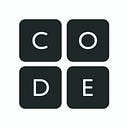How Blockchain Works: Now that the hype has passed, learn about the tech behind it
In this new series of videos and lessons, Code.org and Coinbase partner to inspire the next generation of innovators.
As blockchain technology continues to grow in popularity, it’s increasingly important for students to learn about its potential impact on society. Code.org, in partnership with Coinbase, is taking the lead in providing basic blockchain education to K-12 students through our new series, “How Blockchain Works.”
The purpose of the series — which includes videos and classroom lessons — is to educate students on what blockchain is, how it works, and its potential societal implications. By demystifying the technology of blockchain, students can better understand how it may impact the world they live in and protect themselves from speculative crypto scams and schemes.
Some of the key objectives of the series include understanding what problems blockchain technology and Bitcoin solved when they were created, how blockchain technology operates and is secured, its benefits when applied to various industries, and the societal, economic, and cultural impacts of blockchain.
Meet the experts
To achieve these objectives, we’ve created a series of seven videos featuring major figures in the blockchain world, starting with Brian Armstrong, CEO and founder of Coinbase.
“I think this is one of the most important areas of technology innovation that’s shaping our world today, right up there with AI,” says Armstrong. “These are probably the two biggest trends happening right now. And so many people are coming in to try to learn about this technology to help build the future.”
Other experts in the training series include Litecoin founder Charles Lee, Edge & Node’s Tegan Kline, Protocol Labs founder Juan Benet, Ripple CTO David Schwartz, author Hill Harper, Black Women Blockchain Council’s founder Olayinka Odeniran, Blockchain Capital partner Kinjal Shah, and Harvard economics professor and former Chief Economist of the IMF Kenneth Rogoff , among others.
We hope the series will guide students from the technology underlying the blockchain to the social impact of cryptocurrency in seven separate videos:
- Intro: Go beyond the news to better understand crypto.
- Why Blockchain? A high-level view of what blockchain does by providing a confirmed transaction history.
- Under the Hood: Deep dive into the technology, with Bitcoin as a use case.
- Beyond Currencies: Smart contracts, non-fungible tokens (NFTs), and other applications.
- Marketplaces: A primer into crypto exchanges and price fluctuations.
- Financial Impact: Value, volatility, and scams.
- Societal Impact: The power of crypto to change our future.
In the classroom
To complement the video series, we also developed six lessons, designed to have multiple entry points and to be taught as one-off lessons or within a module sequence. Most lessons follow a pattern where the video is either introduced in the warm-up to introduce key concepts that are expanded upon in the lesson, or the video is watched in the wrap-up to summarize the activity students just participated in.
We hope this will be an excellent resource for fostering classroom conversations and introducing students to the potential of blockchain technology and its impact on society while preparing them to recognize the risks inherent to crypto innovation.
The information in the videos and lessons is not financial advice. However, students who are interested in pursuing a career in blockchain or cryptocurrency can use these resources to gain a better understanding of the technology and its potential impact on society.
By educating the next generation of innovators on the potential of blockchain, we hope to inspire them to develop solutions that harness the power of this technology to create a better world.
— The Code.org Team
Code.org is a 501(c)3 nonprofit organization dedicated to every student having the opportunity to learn computer science as part of their core K-12 education. We are publicly funded by people like you. If you would like to join our commitment to computer science education by making a donation today, please click here. For questions, please contact Development at giving@code.org or (206) 593–5521. Thank you.
